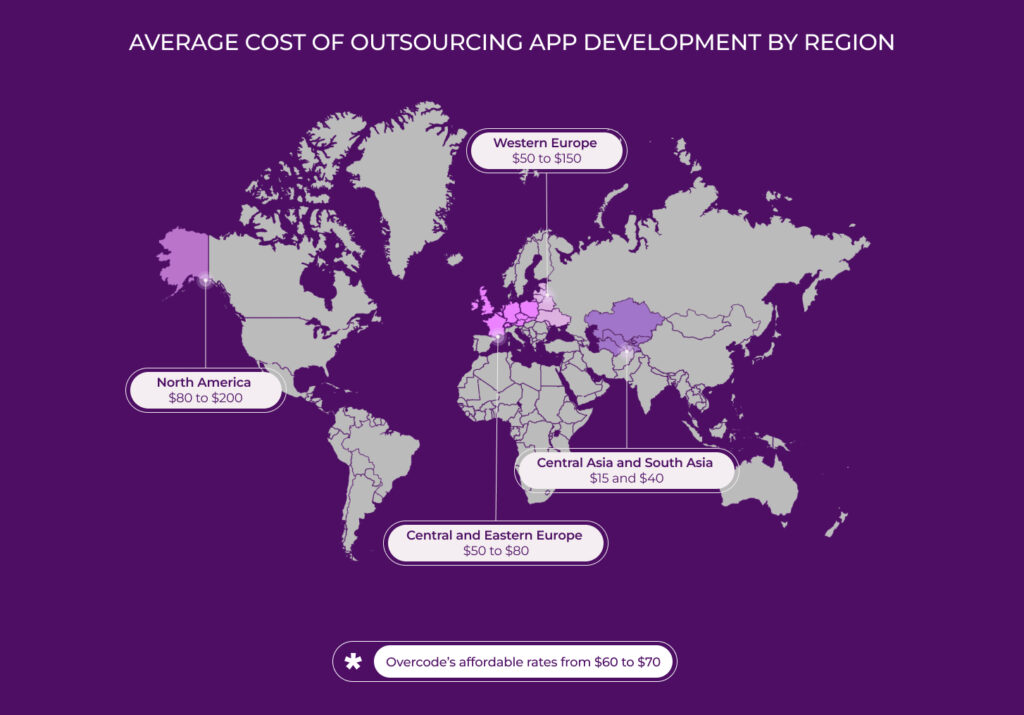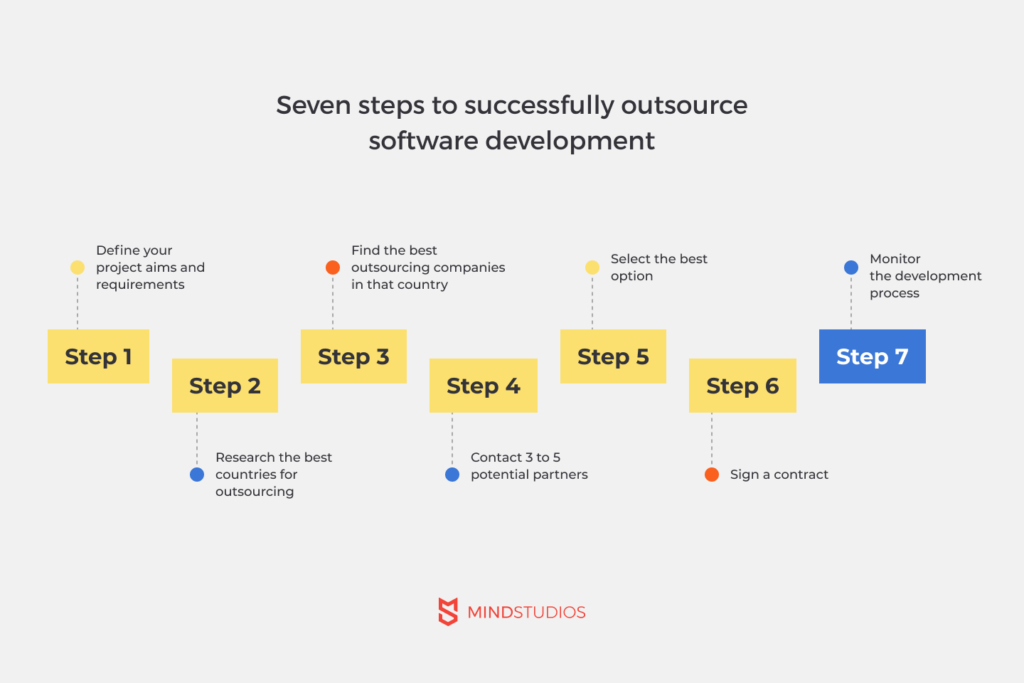Every business wants to grow. However, many find that their internal team cannot cope with the increasing demands anymore. It becomes increasingly difficult to keep up with the quickly escalating daily demands, which can also cause a loss of productivity. The inability to meet the growing needs can hold back the business’s ambitions.
Outsourcing helps the business meets its growth needs. It helps them achieve efficiency by acquiring the best expertise. It can help them cut costs to stay competitive. Outsourcing allows enterprises to delegate some tasks so that they can focus on the core competencies, which in turn may lead to increased revenue generation and profit.
Outsourcing has become a buzzword now as more and more businesses of all sizes are turning to it for various reasons. It all started in the 1990s when several large enterprises began using third parties for manufacturing and logistics management. Since then, many companies have delegated key functions outside, allocating funds where they are most effective. It has played a key role in spreading a free-market economy throughout the world.
What Is Outsourcing?
Outsourcing is a business process where a third-party service provider or another company is hired to execute certain tasks, operations, or services. The hired provider, its systems, and employees are responsible for performing the work for which it has been employed. In outsourcing, the provider can be hired on an ongoing basis or contract for a pre-defined term.
Several operations and jobs are outsourced like bookkeeping processes, payroll management, software development, supply chain tasks, human resource operations, marketing, information technology (IT) services, technical support, after-hours call center operations, and even manufacturing.
Many businesses outsource to advance the talent pool and to tap into the knowledge and experience of the best experts, who may be located in another corner of the world. The hired organization works on a pre-arranged compensation structure.
Benefits for Business
There are many reasons why outsourcing has become so popular. Here are the top reasons why getting external help can be the right choice –
- Cost Saving
Saving operational costs is a major reason why many enterprises outsource work. The salaries are always increasing. There are also additional costs towards health care, training, and travel. Equipment, technology, and infrastructure can further impact the bottom line.
Outsourcing can eliminate or significantly reduce many such expenses. Outside contractors don’t need employee benefits. There is no need to book office space for them, which lowers the real-estate expense. Businesses can save money on office supplies, phones, and computers.
The cost of living in countries like the Philippines and India is much less compared to the Western world. The workers in these countries charge less for doing similar work, which can lead to significant savings.

- Efficiency
Every business aims to become more efficient. Efficiency means achieving more with less – less time, at a lower cost, and by using fewer resources. Efficiency reduces waste and improves productivity, which eventually influences profitability.
By selecting an independent contractor, businesses can hire people with a lot of experience and knowledge. They provide expertise, introduce new initiatives, and can even boost business functions. Of course, outside help can also reduce the workload of the existing staff. They can then focus more on specific tasks, which improves efficiency further.
- Improved Processes
Outsourcing can also improve processes. There can be fresh perspectives and new ideas when another set of eyes looks into the processes. The outside team can identify improvement areas and recommend changes, which can open up new possibilities. There are always improvement areas.
- Huge Talent Pool
Businesses always want to hire the best talents but there is stiff competition to find the right people and retain them. Outsourcing allows companies to select from a huge pool of talented people with different specialized skills. The hired company can even share the cost of hiring the right individuals, onboarding them, and paying for their benefits. They can then be specially trained and tailored to the specific job requirements.
Companies can enlist the help of global EOR services to set up the perfect framework for managing international hires without establishing a local entity. This makes expanding into new markets faster, more compliant and significantly less risky.
- Reduces Time-Consuming Activities
As the business scales up, it can be a headache to train the in-house employees. You must invest to train them, which reduces their availability for work. Finding the right people is also a trial-and-error process. Mistakes can be costly in a competitive market. Also, some activities like customer service can be automated at a marginal cost by offloading to a third party.
- Focus on the Core Competency
The focus should always be on what is important to grow the business instead of administrative tasks. By delegating non-core functions like software development, IT management, accounting, and human resources, the company can focus on more meaningful work that will improve operations and make the business more competitive.
- Reduces Operational Risks
Managing too many departments is risky even for the biggest enterprises. It requires a lot of effort, many people, and plenty of monitoring. Mistakes can be costly. Delegating to outside teams with specialized skills is often the best decision. For example, if you are into manufacturing car batteries, you may want to outsource software development to a third party with years of experience and a varied talent pool for this specific job.
You can scale up and down easily depending on demand and the business environment. On the other hand, increasing or reducing an in-house team is a lot more time-consuming and problematic.
- Improved Customer Service
It is critical for every business to offer the finest customer service. This includes the right marketing approach, generating leads, helping the customers buy, servicing the existing clients, and offering after-sales support. It helps the business immensely if the customers feel valued.
Customer service operations can easily be outsourced. It is the right move, especially for a large business with global operations. The outside help in another geographical area can offer real-time support to the customers in that zone.
- New Ideas and Insight
Many businesses level out after a while. Outsourcing can provide fresh insight and new ideas that can work as a catalyst for growth. A third-party contractor can introduce new techniques that can improve the in-house employees. New systems can improve internal operations.
- Round the Clock Operations
Outsourced providers around the world can unshackle the restrictions of an 8-hour workday. Software development, customer support, and production won’t have to shut down. Your production cycle can be for 24 hours if you hire people in other time zones, which means managers will have completed tasks waiting for them when they reach the office the next day. Projects can be completed and sent back to clients faster.
- Staff Development
Outside experts can take the load off the in-house employees. The core staff members will finally have the time to learn new skills, which will pay rich dividends in the long term.
Most Commonly Outsourced Services
Outsourcing is a strategic necessity for many companies as they cut costs, increase productivity, and leverage specialist knowledge for growth. Here are the most commonly outsourced services –
Software development – Outside software engineers can both design and test custom software applications for business applications, web applications, video games, and mobile apps. They can also develop tools to ensure that the software functions properly.
64% of IT leaders globally outsource their software development. The outsourced software development market has a valuation of $100 billion.
Accounting – Daily accounting tasks can be easily outsourced to free up time for critical business matters that require urgent attention. This includes cash flow management, payroll processing, financial reporting, audit, cost accounting, and financial analysis.
Technical support – Hardware support, including maintenance and repairs, can be outsourced. The technical support team can assist with both installation and troubleshooting. The team can also solve usage-related issues.
HR – Human resource tasks can be time-consuming. Several jobs can be easily outsourced like talent acquisition, training, on-boarding functions, payroll management, employee benefits, policy compliance, and retirement planning.
Marketing – Marketing is important for every business. However, maintaining an in-house marketing team is costly and time-consuming. Marketing functions that can be outsourced include social media management, content writing, and email marketing.
Outsource Software Development
In today’s digital landscape, businesses can find the best software developers from around the world. Both startups and large enterprises are going for software outsourcing.
The software development industry is changing rapidly. New methodologies and programming languages are being developed constantly and previous industry practices are becoming obsolete making outsourcing in software development a standard global strategy. Only a specialized team can keep track of the changes and continuously update itself to stay relevant. This is an impossible task for a business where software development is not one of its core competencies.

Specialized areas like the Internet of Things, cloud computing, and blockchain technology will be a challenge for small and even large companies. Outsourced experts, on the other hand, from anywhere in the world, can develop just the right solutions.
When to Outsource Software Development?
There are several advantages of outsourcing software development. However, many businesses are unsure about the right time for the move. Here are a few situations that will tell you that it is time for outsourcing.
- When the business needs specific technology experts – Organizations may have a core team of programmers but may require a specific technology for the project. The in-house team may not know the new technology. The outside help can provide new skills and solve the issue.
- When you require a full software development team – Outsource if the business doesn’t have an in-house software team. It will cost a lot of money to get the hardware/software, set up the infrastructure, and get the complete team of developers, UI/UX designers, QA specialists, testers, and project managers. The entire work can be outsourced easily. Hire just one senior person to oversee the development.
- When you must scale the existing software – Startups usually face this situation. They have a basic version but lack the resources to scale up and add functionalities. The basic version was just to display the idea. Expert assistance from a technology partner can help.
- When a business must modernize the software – The company already has an existing software but it is a dated version that badly needs to be modernized. The outside help can take it up from the middle stage and bring it up to date with the latest features. The third party can also develop a new module.
- When you want more flexibility – If you want more flexibility in the project or team then it is the right time to outsource. By outsourcing, you can scale up or down anytime you want. Greater flexibility can deal with dips in demand or spikes in the workflow efficiently. There is no need to commit to long-term costs.
- You want to reduce costs – The scope of work has increased and it will be a while before you get paid. An outside team is more likely to help you stay within the budget compared to an in-house team. The cost will be even higher if you have to train the staff. On the other hand, the third party will already have people with the specific skills you need, so you don’t have to spend money on training. Also, if you want new technology, you don’t have to invest in hardware if you decide to outsource. The overhead costs can also be lowered.
- You have to lower the turnaround time – Almost all software development teams work with tight deadlines. Fixing a bug is an emergency that needs immediate attention. An outside development team should have efficient problem-solving skills. The issues can be solved quickly.
Advantages of Outsourcing
Outsourcing web development is the process of delegating the task of developing a website to a third party. It offers numerous advantages –
- Lower development costs
- Reduced overheads
- Access to the best experts
- The latest technologies
- More flexibility
- Faster production
How the Work is Structured?
Outsourcing is a great idea but you will still need to be careful. Follow these steps for maximum efficiency.
- Choosing a company – Research extensively to find the right provider for your needs. Look for a business with relevant experience and a strong reputation. Check the case studies and portfolios to assess the quality of work.
- Forming a technical task – Prepare your scope of work document, including the technologies you want and the features and functionalities you desire. It should be detailed.
- Agreeing on a budget – Agree on the budget before the work begins. It should include the skills, technologies, and the number of people required in the team to complete the job successfully.
- Agreeing on deadlines – Work with the third-party provider and set up realistic delivery deadlines.
- Signing a contract – Finally, you have to sign the contract to formalize the agreement.
Outsourcing is always a good idea, especially for software development and web development for most companies. It offers many advantages, which is why outsourcing has become so popular. Make sure to stay engaged with the third party to ensure that the work is going according to the plan.
To read more content like this, explore The Brand Hopper
Subscribe to our newsletter




